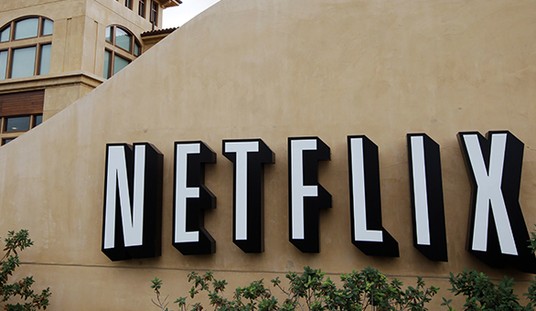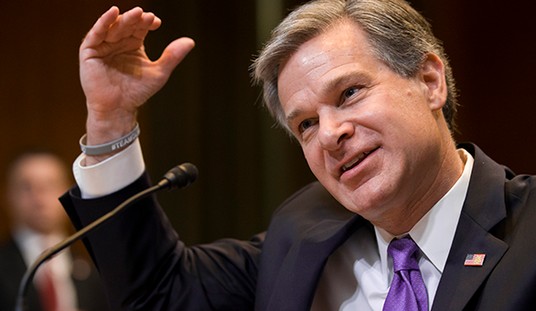A consortium of global media companies, including the BBC and ABC News, commissioned an opinion poll of Iraqis to determine their state of mind. They found that Iraqis have grown significantly more optimistic across the board, with major gains in confidence regarding security and a drop in support for militias. The poll comes at the fifth anniversary of the invasion and about a year after the change in American tactics now called the “surge” began:
Fifty-five percent of Iraqis say things in their own lives are going well, well up from 39 percent as recently as August. More, 62 percent, rate local security positively, up 19 points. And the number who expect conditions nationally to improve in the year ahead has doubled, to 46 percent in this new national poll by ABC News, the BBC, ARD German TV and the Japanese broadcaster NHK.
Without directly crediting the surge in U.S. forces, fewer report security as the main problem in their own lives – 25 percent, nearly half its peak last spring. Forty-six percent say local security has improved in the past six months, nearly double last summer’s level.
The number of Iraqis who feel entirely unsafe in their own area has dropped by two-thirds, to 10 percent. And with Sunni Arab buy-in, U.S.-funded Awakening Councils, created to provide local security, are more popular than the Iraqi government itself.
Even more striking is the halt in worsening views. In August, Iraqis by 61-11 percent said security in the country had gotten worse, not better, in the previous six months. Today, by 36-26 percent, more say security has improved. The new positive margin is not large. But the 35-point drop in views that security is worsening is the single largest change in this poll.
Problems still remain. The Shi’ites and the Kurds have the most optimism, as the BBC points out in its reporting on the survey. By 62% and 73%, respectively, they are happy with their lives. In contrast, only 33% of Sunnis say that. They have still not been engaged enough by the Baghdad government, although improvements have been made. While that remains the case, the potential for violence and dissension will be significant.
However, as ABC notes, Baghdad and Anbar have driven most of the improvement in polling since August. That shows some significant movement among the Sunnis, even if the numbers remain troubling low. For instance, 71% of the Anbar respondents rated security as good, an amazing number considering the common wisdom in 2006 of Anbar as “lost”. In Baghdad, where violence remains a problem, the number has risen to 43% — still an improvement, but a reflection of more work needing to be done in the capital.
Economics have also improved rapidly. In Baghdad and Anbar especially, Iraqis feel much more confident. A twenty-point jump since last August has a majority rating their household finances positively. Interestingly, the greatest jump came from one of the poorest sectors in Iraq, Sadr City in Baghdad. As personal economics continue to improve, one can expect less support for destabilizing violence. Vast majorities still complain — legitimately — about the delivery of utility services, but with violence declining, the US and Iraq can now focus on these larger-scale projects.
Even the hostility to the US has begun to fade. A large plurality, 49%, now believe the US was right to invade, up 15 points since last August and the highest such result since 2004. The number who believe attacks on American troops are acceptable dropped 15 points, but remains at 42%. While a large majority dislike having foreign troops in their country, only 38% want an immediate withdrawal of American forces — maybe less than what one might find in the US. As many as 80% want the US to remain engaged in Iraq for other purposes, such as fighting terrorists, especially al-Qaeda, military training, and keeping Iran and Turkey at bay.
When General David Petraeus reports to Congress this month, he can show this to its members and remind them of his previous testimony of improvement. Will Hillary Clinton apologize now for calling him a liar?
Update (AP): Dave Price e-mails with a nice catch, from page 10 of the PDF:
Sunnis Arabs account for 30 percent of all Iraqis in this survey, Shiites 51 percent and Kurds (who are Sunnis, but not Sunni Arabs) nearly all the rest.
Sound familiar? It should — it’s the same problem ABC ran into the last time they surveyed Iraqis, in March 2007. According to best estimates, Sunnis comprise 32-37% of the population. But that’s not a uniform group: It includes Sunni Arabs, the backbone of the insurgency, and Kurds, America’s most reliable ally. What are the demographics when ethnicity is added to the religious matrix? Per Global Security, it’s Shiites 60-65%, Kurds 18-20%, and Sunni Arabs 12-15%. In other words, ABC overrepresented Sunni Arabs by 15-18%. Since they tend to be the most disgruntled about the overthrow of Saddam, their loss of power in Baghdad, and (understandably) the privations visited upon them by insurgents, their poll data tends to be more dour than the Shiites’ or the Kurds’, so that overrepresentation is dragging down the positivity of the data by several percentage points at least. Thanks to Price for noticing that.









Join the conversation as a VIP Member